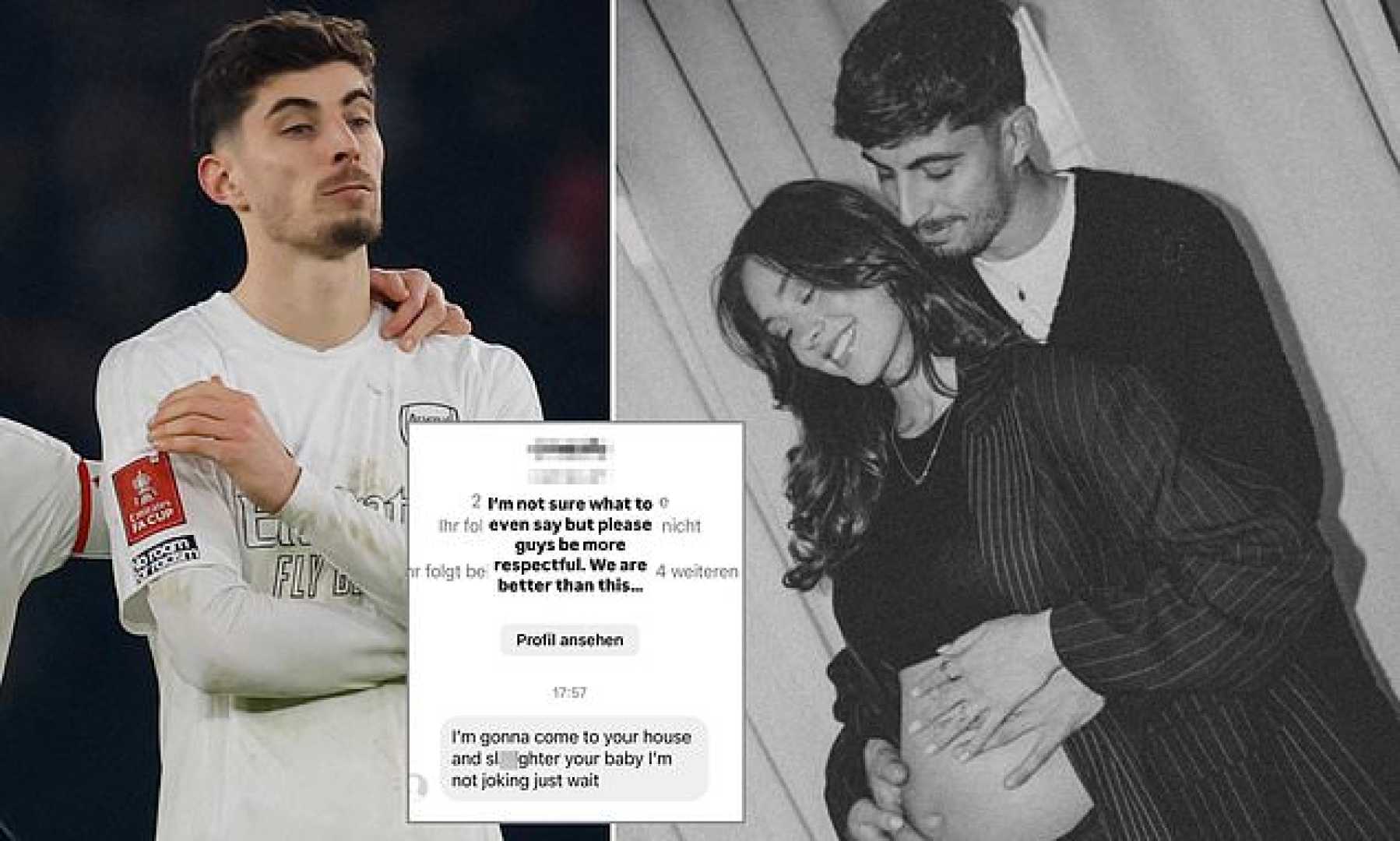Sports
Footballers Face Online Abuse: Havertz, Wreh Highlight Social Media Crisis

LONDON, England — Arsenal forward Kai Havertz and Tamworth striker Chris Wreh have become the latest victims of online abuse, shedding light on a growing crisis in football. The incidents, which included death threats and racial slurs, have sparked investigations and renewed calls for action against social media hate.
Havertz, 25, faced severe backlash after Arsenal’s penalty shootout loss to Manchester United on Sunday. The German international missed a crucial spot-kick and two clear chances during the match, prompting a wave of criticism. However, the abuse escalated when his pregnant wife, Sophia, received threatening messages on Instagram, including wishes for a miscarriage and threats to their unborn child. “For anyone to think it’s okay to write something like this is so shocking to me. I hope you are so ashamed of yourself,” Sophia wrote in response.
Hertfordshire Police confirmed they are investigating the malicious communications. Arsenal, known for their proactive stance on such issues, has employed a specialist data science company to identify the perpetrators. The club has also vowed to revoke season tickets and memberships of those involved.
On the same day, Tamworth’s Chris Wreh, who played against Tottenham in the FA Cup, received a racially abusive message on Instagram containing the N-word. Wreh shared the message to highlight the issue, stating, “Sadly, this happens all too often.” He later made himself unavailable for a cup tie, citing disappointment with the club’s lack of public support. Tamworth responded by stating they are working with police and supporting Wreh behind the scenes.
These incidents are not isolated. Aston Villa’s Tyrone Mings and Manchester United’s Harry Maguire have also faced online abuse in recent years. According to the Professional Footballers’ Association, 28% of players surveyed last season reported that online abuse affected their mental health, a figure that has risen annually.
Arsenal manager Mikel Arteta called for social media platforms to take responsibility. “We really have to do something about it, because accepting that and hiding this has terrible consequences,” he said. “It’s something we have to eradicate from the game because it’s so cynical and dependent on the result of an action.”
Adding to the controversy, Domino’s Pizza UK faced backlash for a tweet mocking Havertz’s performance. The post, which was later deleted, drew criticism for its insensitivity. Arsenal contacted Domino’s to express their displeasure, and the company removed the tweet.
Despite the abuse, Havertz remains resilient. “You’re shit. Go back to Germany,” he said, mimicking his critics. “Whatever. I’ve heard it all.” However, the emotional toll on players and their families continues to grow, raising questions about the effectiveness of current measures to combat online hate.
As investigations continue, the football community is left grappling with how to address this pervasive issue. Social media companies, clubs, and law enforcement must work together to protect players and their families from the dark side of the beautiful game.












